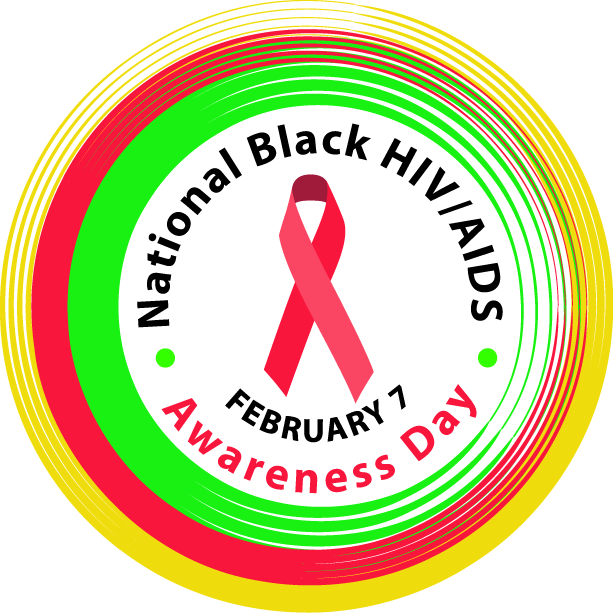February 7, 2018 marks the 18th year for National Black HIV/AIDS Awareness Day (NBHAAD), a national HIV testing and treatment community mobilization initiative targeted at Blacks in the United States and the African Diaspora.[1] Founded in 1999 as a national response to the growing HIV and AIDS epidemic in Black communities, NBHAAD 2018 presents the opportunity for those who have held communities together, spoken truth to power, demanded higher quality services, and advocated for better access to treatment/prevention to help us achieve the end of the epidemic in our lifetime.

We are more than 30 years into the HIV/AIDS epidemic and the Black community remains under siege. Of the estimated 1.2 million people living with HIV/AIDS in the U.S., nearly half (498,400) are Black.[2] While the U.S. remains 12 percent Black, our community accounts for 45 percent of new HIV diagnoses.[3] Blacks also account for 44 percent of the HIV-related deaths.[4] The burden of the HIV/AIDS epidemic continues to primarily be felt by Black cis women, Black transwomen, Black youth, and Black gay and bisexual men.
These numbers have been slow to change despite a new era where options for and access to prevention and treatment have never been better. Scientific breakthroughs have made it possible for us to now live in a world where maintaining an undetectable status can extend a person’s lifespan and makes it nearly impossible for one to transmit HIV to another person. Moreover, there is now a pill that when taken daily can prevent HV transmission. However, the Black community continues to lag behind in achieving viral suppression and using PrEP/PEP.
Each of us has the responsibility to show that it is the will of the people to change what it means to think about HIV in the black community. NBHAAD 2018 should be the moment where the black community changes our conversation about the disparities we see in HIV and articulates a real vision of health equity and justice. Our country should be a place where health outcomes are not based on race and place. Everyone can reach this grand destiny. The transformative power of our community can be unleashed to reimagine our health. In this moment, we can recommit to an intersectional fight that seeks to end this epidemic by improving the health outcomes of our community. That means more access to insurances, increased use of medical care, more affordable housing, increased levels of education, and more employment with social mobility. The nature of the necessary changes challenge the way that systems and institutions think about and support one another. Moreover, the systems and institutions that claim to support our community must reorient how they think of our community. Systems and institutions must provide us with what we need to help everyone move forward.
The nation has been focused on the achievements of black women recently and, in the case of HIV, we would do well to follow their trail. It’s one that has seen the first significant decreases in new diagnoses of HIV for black women. It’s one that has seen record numbers of treatment services to be expanded to think of the holistic needs of an individual’s. It’s one that has some of the biggest congressional champions on the HIV front in the form of Congresswomen Lee and Waters. We need to drive similar outcomes and champions from all levels of our community that are touched by HIV. The black cis women have shown a possibility model. However the rest of our community must be equally tireless in our resolve to achieve similar levels of success. That commitment will lead all of us towards a path to the end of the epidemic. Yes, on this year’s NBHAAD we must continue the course and the promise of a future that millions have given their lives in services of. We are about to approach a point where we are closer to the end of the epidemic then we are at the beginning in many metrics, but the this has all been balanced on a delicate map. And in this moment we have to push together collectively to realize the promise that Black women have shown us is possible for our community. That, as always, is our collective strength that has helped us overcome and shaped reality that has made our community better.
On NBHAAD 2018, we must reflect, (re)commit and (re)think how we approach HIV prevention and treatment. May we celebrate how far we have come and look ahead with passion and hope towards the places that we still must go. We must ask new/different questions that facilitate the evolution of our understanding of this epidemic, such as:
How can we invite in the missing people from the conversation,
- How do we identify the missing markers, the lost gaps and missed opportunities that could change us?
- How do we meaningfully engage community members who have not felt or seen advances in prevention and/or treatment?
In these uncertain times, the answers to these questions will shape the way forward. Personally, lend your voice to the chorus that is calling for and creating change so together we can say:
- We promptly answered the call when it was time to end the epidemic in our community
- We found a way to continue to uplift our community and accelerate the end to this epidemic
- YES, the reality of prevention and care was truly be realized in our lifetime
The world is waiting to see if we can work together to make ending the epidemic a full reality. Stand with NMAC to build a bridge to our liberation.
Matthew Rose
Policy and Advocacy Manager
NMAC
[1] https://nationalblackaidsday.org/about-us-2/
[2] https://www.cdc.gov/hiv/group/racialethnic/africanamericans/index.html
[3] https://www.cdc.gov/hiv/group/racialethnic/africanamericans/index.html
[4] https://www.cdc.gov/hiv/group/racialethnic/africanamericans/index.html
